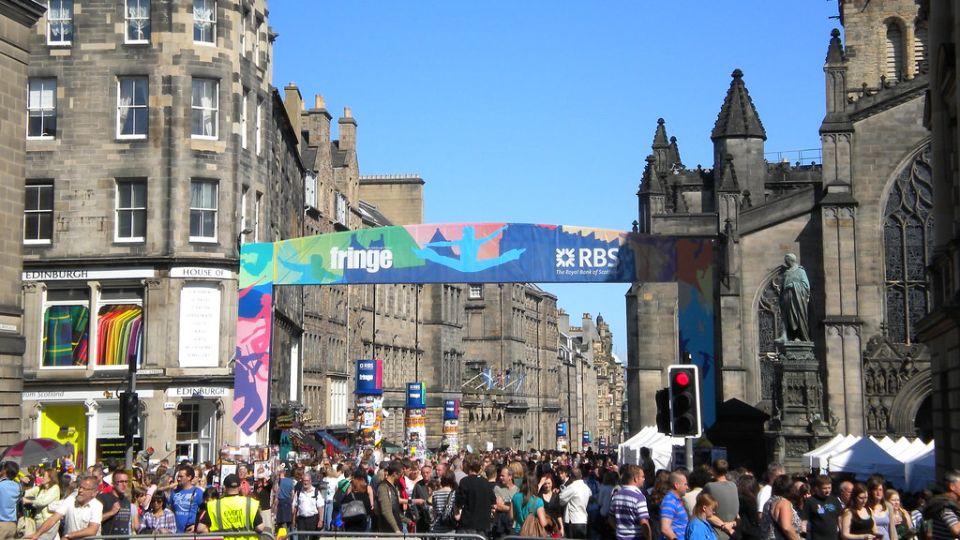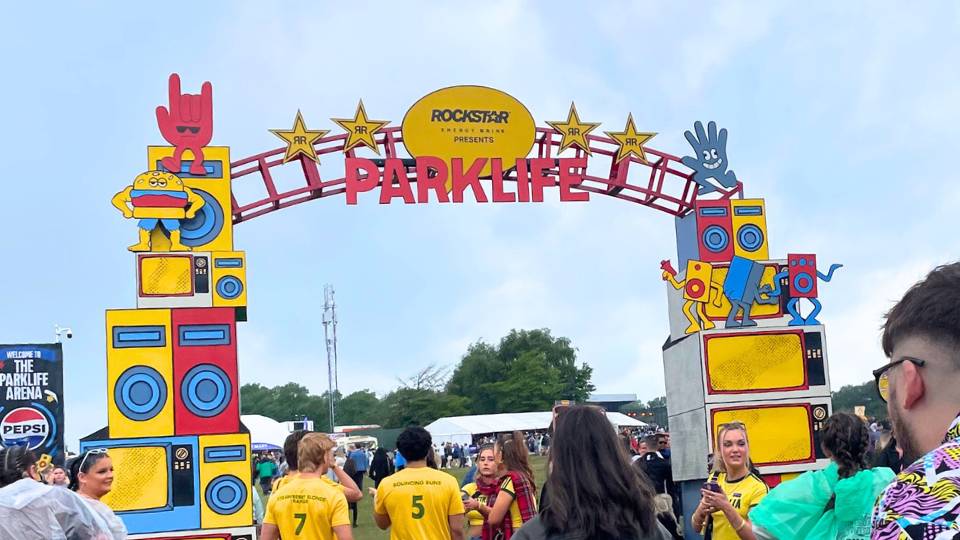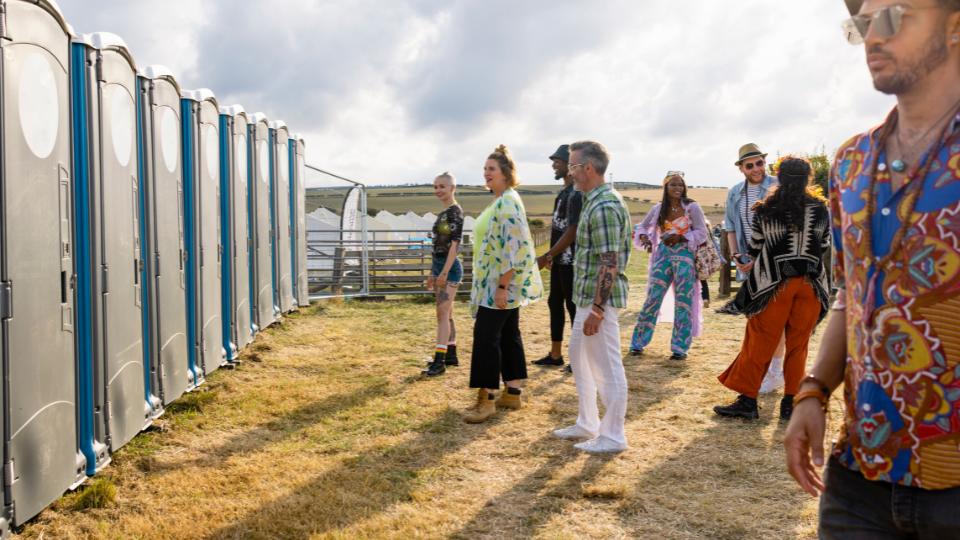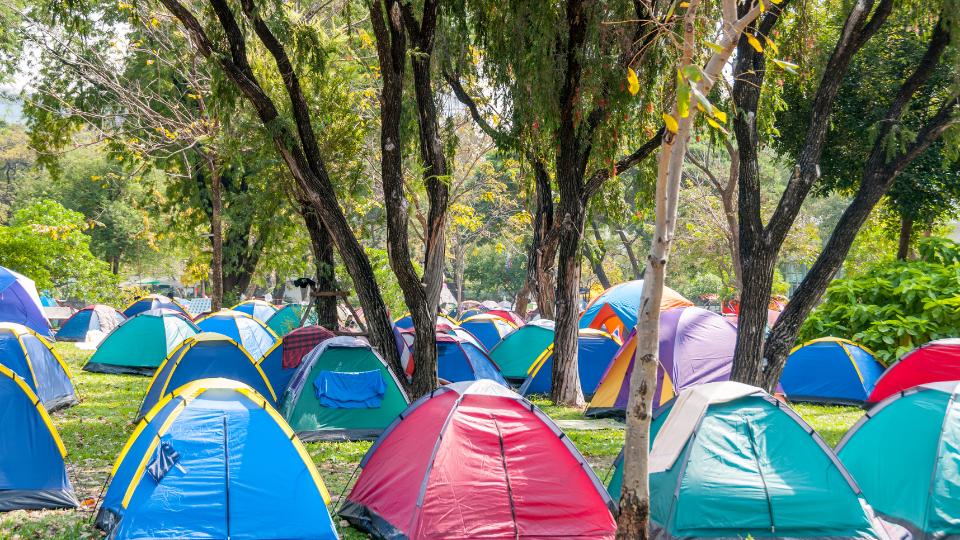
Organisers of the event have taken measures to reduce its carbon footprint by 77% since 2015.
Despite these efforts, waste management workers decided they had gotten tired of rubbish pay and decided to take part in a strike during the Edinburgh 2022 Fringe Festival.
Unions in the city of Edinburgh organised the strikes to begin on August 18 and end on August 30, with over 250 workers participating.
But will history repeat itself again in 2024?

Over the years, they have consistently reduced the amount of waste we send to landfills and increased their recycling efforts.
The only slight increase in waste generation has been due to the growth in personnel.
To encourage waste reduction among individuals using their buildings, they have implemented clear signage that helps visitors make informed choices, especially when it comes to bringing recyclable products.
In a commitment to sustainability, they have significantly decreased the print run for the Fringe programme.
In 2017, they printed 395,000 copies, but in 2022, they managed to reduce it to 175,000 copies.
Collaborating with the City of Edinburgh Council and other partners, Fringe is actively engaged in a city-wide endeavour to ensure that recycling signage is accessible to all audiences.
By making recycling instructions clear and inclusive, they aim to enhance recycling rates and promote responsible waste management throughout the community.
Impact on Locals
Aesthetics and Pride
Litter can negatively affect the aesthetics of the local environment, creating an eyesore for residents. It diminishes the beauty of the city and can leave locals feeling disheartened.
When the festival is over, it is the local community that remains, and a litter-filled environment can erode their sense of pride in their city.
Environmental Concerns
Locals are often more aware of the long-term impact of litter at Fringe Festival on the environment.
They understand that improper waste disposal can harm wildlife, pollute waterways, and contribute to ecological degradation.
Excessive litter can damage ecosystems and disrupt the delicate balance of local flora and fauna.
This is of particular concern for the visitors that choose to camp in local campsites.
Increased Pressure on Services
Dealing with the aftermath of the Fringe Festival litter problem places an added burden on local waste management and cleaning services in Edinburgh.
The increased workload can strain resources and divert attention away from other essential community needs.
This can lead to frustration among residents who may feel that their concerns are being neglected.

Influencing Tourists to Reduce Litter at Fringe Festival
Spreading the right message
Promoting responsible waste management practices should be an integral part of the Fringe Festival experience.
Engaging tourists through various channels, such as festival guides, social media campaigns, and on-site information booths, can help raise awareness about the impact of litter and the importance of proper waste disposal.
Providing information on local recycling programs and guidelines can guide tourists towards making more environmentally conscious choices.
Lead by Example by Avoiding Litter at the Fringe Festival
Fringe Festival organisers can set an example by prioritising sustainable practices and waste reduction strategies.
Incorporating eco-friendly initiatives like zero waste policies, recycling stations, and biodegradable food containers can inspire festival-goers to follow suit.
When tourists witness organisers’ commitment to sustainability, it can influence their behaviour and encourage them to reduce litter.
Engaging Local Community
Encouraging local residents to participate actively in the festival, either as volunteers or through collaborative initiatives, can foster a sense of ownership and responsibility.
By involving locals in clean-up efforts, waste management workshops, or eco-friendly art installations, a collective effort can be established to keep the city clean.
This involvement can also create a positive ripple effect on tourists, influencing them to adopt similar responsible practices.
Visual Communication
Effective signage and visual cues can play a vital role in encouraging tourists to dispose of waste properly.
Clear, multilingual signage indicating the location of bins, recycling instructions, and reminders to keep the city clean can guide visitors towards responsible behaviour.
Visual displays showcasing the beauty of the local environment and the potential impact of litter can also make a lasting impression and foster a sense of responsibility.
Conclusion
Fringe Festival 2023 has the potential to bring joy, creativity, and economic benefits to both tourists and locals.
However, it is crucial to address the issue of litter at Fringe festival and its impact on the local community. By raising awareness, leading by example, engaging the local community, and using effective visual communication, festival organisers can influence tourists to reduce litter at Fringe festival.
Together, locals and tourists can work hand in hand to create a clean, sustainable, and mutually beneficial waste-free festival experience for everyone involved.
Let’s ensure that Fringe Festival 2024 leaves a positive imprint on the host city.








